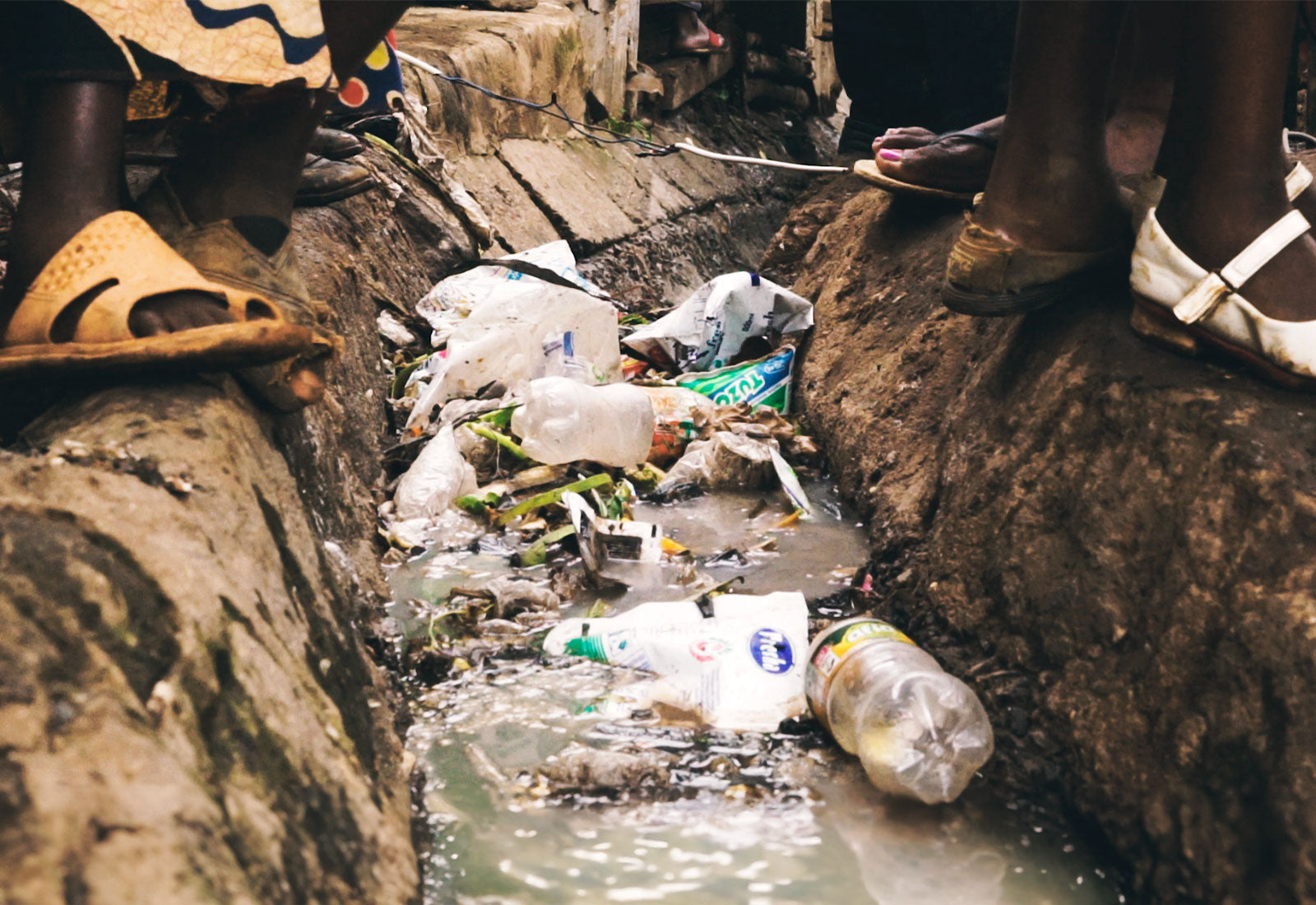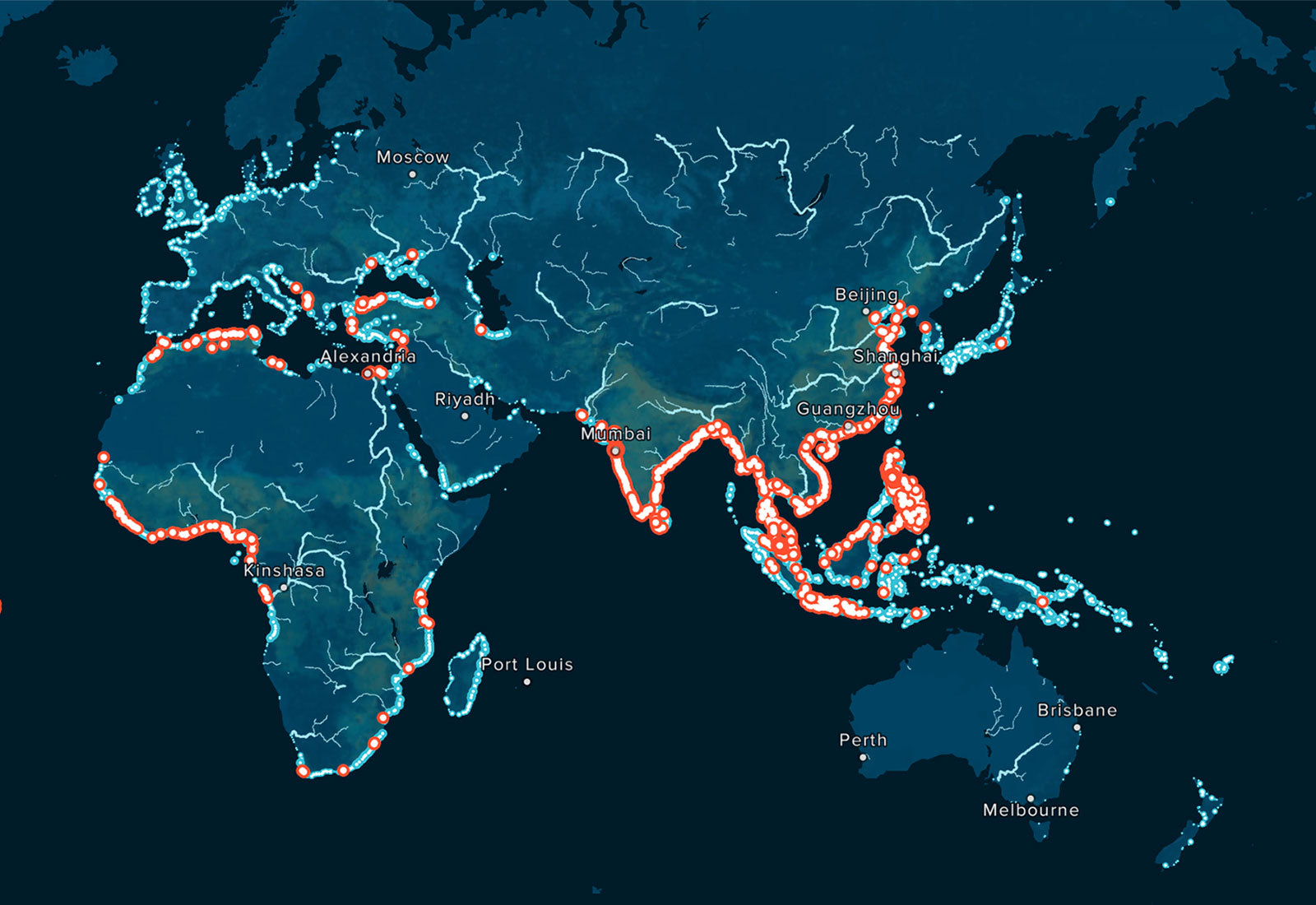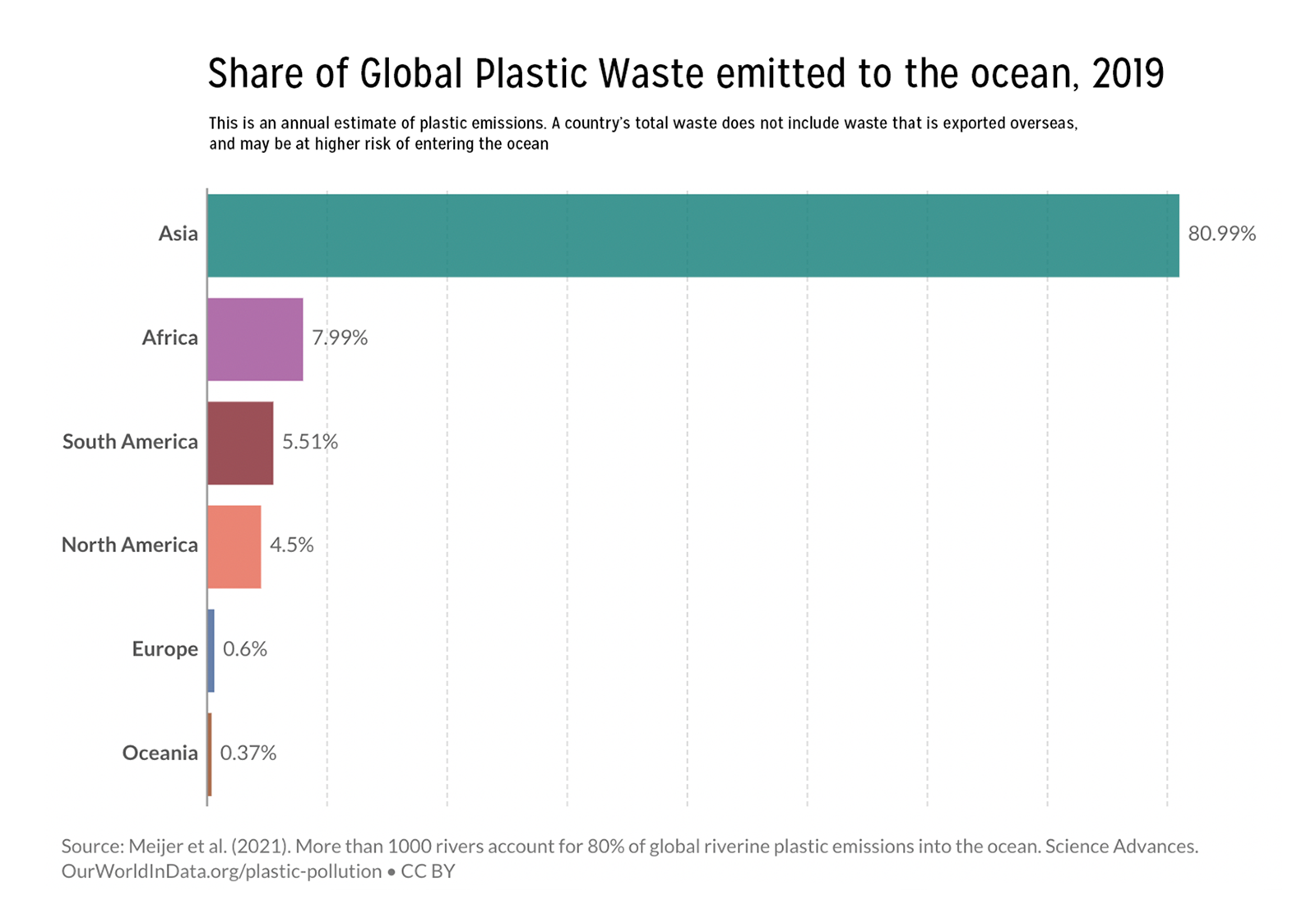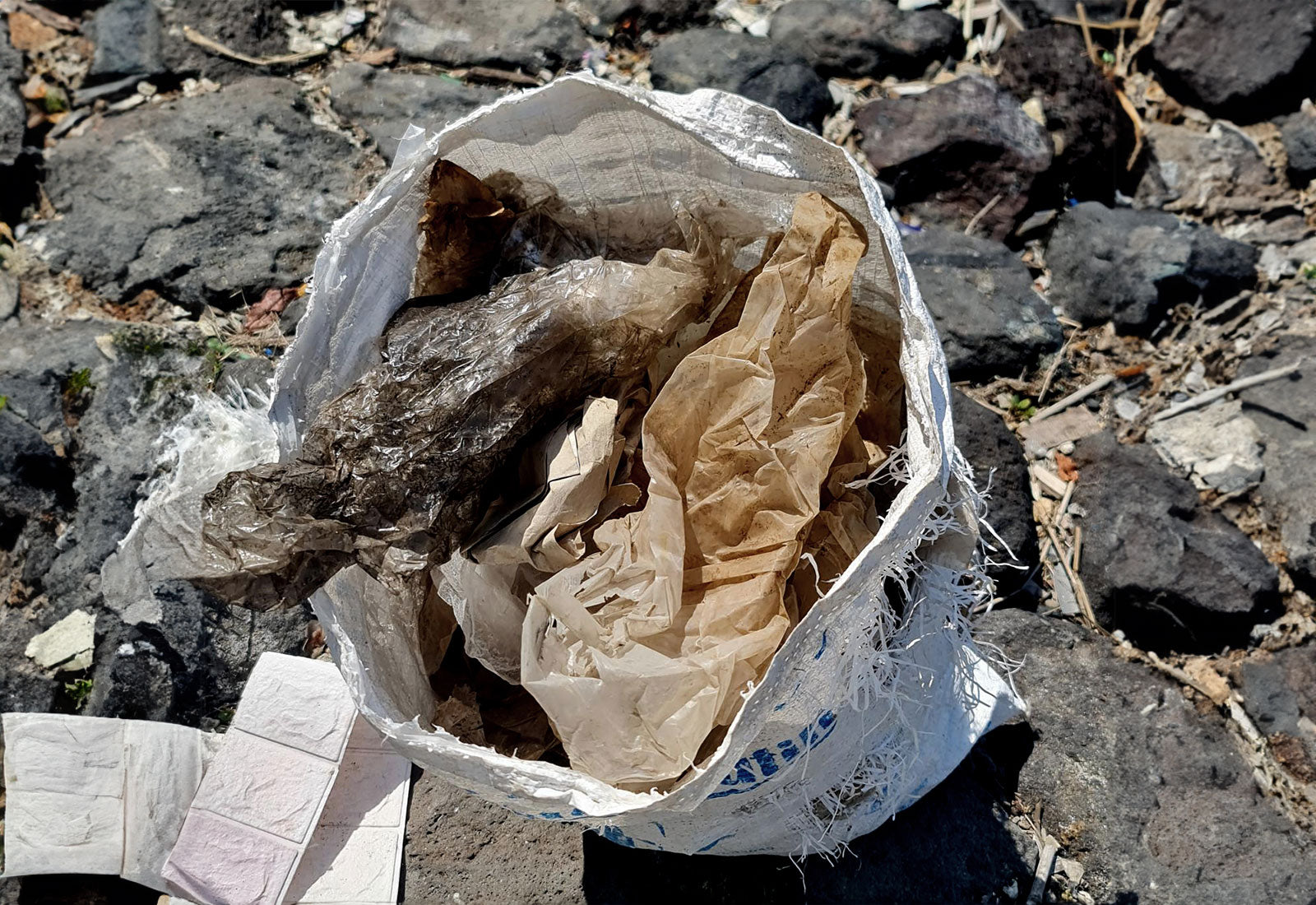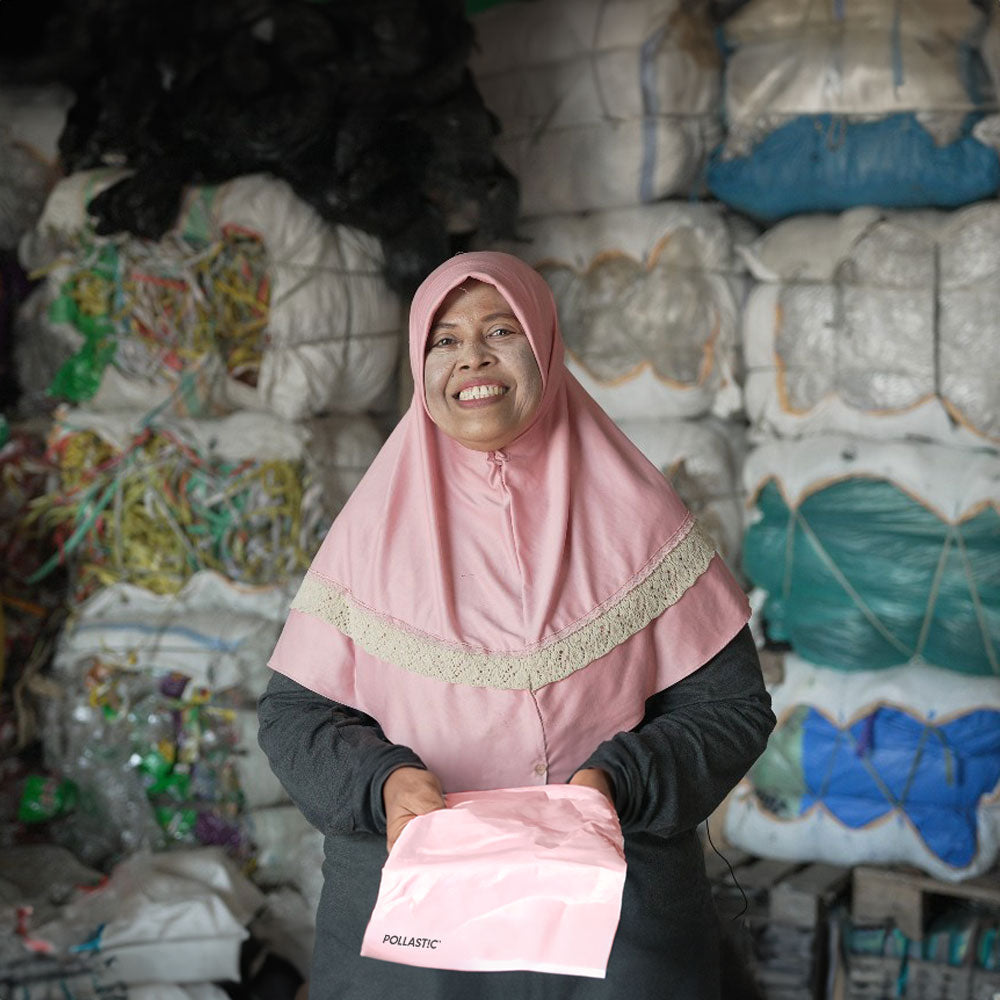"100% ocean-bound plastic" means that the plastic used in the production process is sourced entirely from certified ocean bound plastic waste.
Where are we shipping to?
We use cookies to save your preferred shopping region. By selecting 'Remember Me' you consent to the use of cookies as described in our Privacy Policy
'Ocean Bound Plastic' is plastic pollution rescued from nature that is certified to be at high risk of getting into the ocean. To be certified OBP, it has to meet three key criteria.
'Ocean Bound Plastic' is plastic pollution rescued from nature that is certified to be at high risk of getting into the ocean. To be certified OBP, it has to meet three key criteria.
Ocean-bound plastic refers to plastic waste that meets 3 key criteria;
When plastic pollution has these characteristics it has been scientifically proven to be at high risk of entering the ocean.
Ocean-bound plastic refers to plastic waste that meets 3 key criteria;
When plastic pollution has these characteristics it has been scientifically proven to be at high risk of entering the ocean.
You might think that 50km (30miles) is a pretty long way from the coast and that if plastic was abandoned there that it wouldn’t be very “likely to end up in the ocean”, but in the regions where we collect pollution, it’s different. There's one key reason why – water!
Water picks up and carries plastic very easily, in fact rivers are the single greatest source of plastic in the ocean¹.
Southeast Asian countries are among the wettest in the world. They are subject to torrential monsoon rains that collect everything in their path – ditches flow into streams, streams into rivers and from there into the ocean.
Check out this amazing interactive map of the Worst-polluting rivers in the world (red dots)
You might think that 50km (30miles) is a pretty long way from the coast and that if plastic was abandoned there that it wouldn’t be very “likely to end up in the ocean”, but in the regions where we collect pollution, it’s different. There's one key reason why – water!
Water picks up and carries plastic very easily, in fact rivers are the single greatest source of plastic in the ocean¹.
Southeast Asian countries are among the wettest in the world. They are subject to torrential monsoon rains that collect everything in their path – ditches flow into streams, streams into rivers and from there into the ocean.
Check out this amazing interactive map of the Worst-polluting rivers in the world (red dots)
80% of the plastic in our oceans has entered via land and most of that comes from Asia. In many of these countries, there is also no formal waste management infrastructure; no garbage trucks coming around, no trash cans on street corners, no managed landfills. In fact, most rubbish will be burnt or dumped where it’s subject to animals foraging and when the monsoon rains come, they'll wash it away, downhill ... to the sea.
The Visual Capitalist explains, “Some might think that the countries producing or consuming the most plastic are the ones that pollute the oceans the most. But that’s not true… Countries with a smaller geographical area, longer coastlines, high rainfall, and poor waste management systems are more likely to wash plastics into the sea.”
80% of the plastic in our oceans has entered via land and most of that comes from Asia. In many of these countries, there is also no formal waste management infrastructure; no garbage trucks coming around, no trash cans on street corners, no managed landfills. In fact, most rubbish will be burnt or dumped where it’s subject to animals foraging and when the monsoon rains come, they'll wash it away, downhill ... to the sea.
The Visual Capitalist explains, “Some might think that the countries producing or consuming the most plastic are the ones that pollute the oceans the most. But that’s not true… Countries with a smaller geographical area, longer coastlines, high rainfall, and poor waste management systems are more likely to wash plastics into the sea.”
It's simple - we collect Ocean-bound plastic to keep it out of nature.
We need to incentivise people in the regions where most ocean plastics come from to rescue plastic pollution BEFORE it gets into the riverways.
Being in a river or the ocean speeds up the process of plastic degrading into microplastics. As it degrades, it also becomes more and more difficult to recycle, and if the more difficult to recycle, the less value it has! By collecting recycling Ocean Bound Plastic into products that businesses need, we create a commercial incentive for the collection of plastic pollution. It's Better for everyone!
It's simple - we collect Ocean-bound plastic to keep it out of nature.
We need to incentivise people in the regions where most ocean plastics come from to rescue plastic pollution BEFORE it gets into the riverways.
Being in a river or the ocean speeds up the process of plastic degrading into microplastics. As it degrades, it also becomes more and more difficult to recycle, and if the more difficult to recycle, the less value it has! By collecting recycling Ocean Bound Plastic into products that businesses need, we create a commercial incentive for the collection of plastic pollution. It's Better for everyone!
After 18 months of R&D, Better Packaging Co. produced a world first range of mailing satchels, poly garment bags (and more) from recycled Ocean Bound Plastic pollution.
This is our POLLAST!C™ Range which we supply to companies for them to use instead of packaging made from virgin plastic, so it’s a win on many fronts; we are able to pay people in developing countries to rescue plastic pollution from their environment, provide them with employment AND prevent the need for new plastic to be made and put out into the world.
We’ve got enough of this plastic sh!t already in the world, we just need to start valuing it Better.
After 18 months of R&D, Better Packaging Co. produced a world first range of mailing satchels, poly garment bags (and more) from recycled Ocean Bound Plastic pollution.
This is our POLLAST!C™ Range which we supply to companies for them to use instead of packaging made from virgin plastic, so it’s a win on many fronts; we are able to pay people in developing countries to rescue plastic pollution from their environment, provide them with employment AND prevent the need for new plastic to be made and put out into the world.
We’ve got enough of this plastic sh!t already in the world, we just need to start valuing it Better.
Make your selections below
